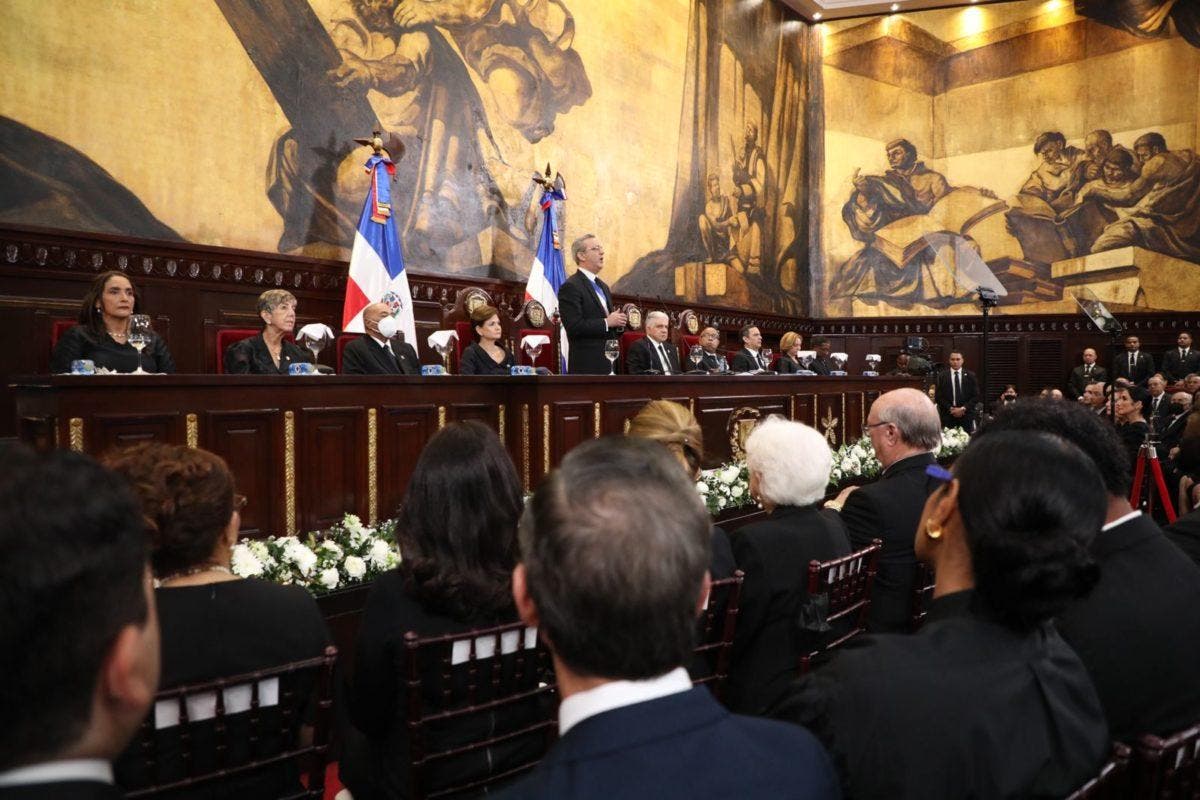The reverse gear in the Uruguayan position in the OAS towards the Russian advance in Ukraine marks the second time that President Luis Lacalle Pou intervenes in the management of his Foreign Minister Francisco Bustillo after adopting positions contrary to the foreign policy that the Executive Tower intends. The Presidency’s disavowal of the Ministry of Foreign Affairs had already happened a year and a half ago when a “circumstantial error” resulted in the beheading of a hierarch.
Lacalle Pou ordered Bustillo this weekend to adhere to the declaration of the Organization of American States (OAS) that condemned Russia’s “illegal, unjustified and unprovoked” invasion of Ukraine. Uruguay had been left last Friday as one of the 10 countries -within 34- that did not accompany the affirmation of rejection.
The Foreign Ministry had instructed the ambassador to the OAS, Washington Abdala, not to add support to the declaration, arguing that neither Argentina nor Brazil would support the initiative. With the intervention of the Executive Tower, the government has now entrusted Abdala to initiate the steps to rectify the Uruguayan position.
as he knew The Observer, the president played a fundamental role in these hours for Uruguay to modify its position.
The instruction Abdala received came directly from the chancellor, through a hierarchy of the chancellery, on Friday morning. Abdala had begun consultations with the Santos Palace on Wednesday and had argued about the need to adhere to the resolution by virtue of its content and the numerous adhesions that he had attracted.
However, the leadership of the Foreign Ministry thought it appropriate not to vote on the declaration and so they informed Abdala on Friday morning, before entering Parliament to appear for the negotiation of the Free Trade Agreement with China.
After the publication of the news this Saturday, the Foreign Ministry released a statement in which it argued that had not voted on the resolution to which 24 countries adhered because Uruguay had already carried out “forceful public demonstrations regarding the invasion of Ukrainian territory and condemning such actions” in two communiqués issued by the ministry, with a presidential tweet and also the word of Luis Lacalle Pou at a press conference.
However, the word “condemnation” – one of the terms that ranks highest in the diplomatic world to indicate the disapproval of a conduct by an international actor – had not appeared in the two previous communiqués of the Uruguayan diplomacy as a result of the Russian invasion of Ukraine. Yes, the president had used it when referring to the issue at a press conference in harsher terms than in his Twitter post. The Foreign Ministry statement this Saturday was also the first to use the word “invasion” and not “offensive” by Russia.
The contradictory position this Friday before the OAS led to questions even from coalition partners, as was the case of the Independent Party deputy, Iván Posada, who wrote on Twitter: “How is it that the Uruguayan representation in the OAS has not accompanied this statement with your vote? Unfortunate!” Before the retreat this Sunday, the deputy of the MPP, Daniel Caggiani, went out to the crossroads of the ruling party and attacked: “A minister without a portfolio.”
Lacalle’s first intervention: the case of Israel
ANDhe precedent to an episode of these characteristics took place in September 2020, when Uruguay adhered to a declaration by the United Nations Economic and Social Council that condemned Israel for “systematic violations of the human rights of the Palestinian people and their effects on women and girls”. The resolution reaffirmed that “the Israeli occupation remains a serious obstacle for Palestinian women and girls in terms of realizing their rights.”
Bustillo had then been at the head of the Foreign Ministry for two months, which had been left headless with the resignation of Colorado Ernesto Talvi. After the vote, Israel’s ambassador to Uruguay, Yoed Magen, met with President Luis Lacalle Pou. In the communication they made public, they indicated that they discussed the bilateral agenda and toasted the new Jewish year. This positioning gave the government criticism from his Colorado associates and the Israeli Central Committee.
The following week, the new foreign minister informed the general secretary of the Colorado Party, Julio María Sanguinetti, that the statement had been a “circumstantial error.” The hierarch ratified in turn that the foreign policy “would maintain the historical line of support of the rights of that State.”
The morning after the news came out, the ministry made public the replacement of the then director general of Political Affairs, Pablo Sader, now appointed as the new ambassador to the European Union. The former chief had been selected by Talvi to occupy the position, but after his resignation and the assumption of Bustillo in July, the former ambassador of Spain and new chief kept him in the position. That morning Bustillo had met with Lacalle Pou in the Executive Tower, and at the exit he avoided making any statements.
Also on that date Lacalle Pou interceded for the Foreign Ministry to vote in the United Nations Human Rights Council on a resolution proposed by the Lima Group by which the mandate of the international mission investigating the violation of human rights in Venezuela was extended. Through Twitter, the version had begun to circulate that the country would not accompany the motion that had been presented a few hours earlier on behalf of the Lima Group, which caused the president to summon Bustillo to a meeting to learn the instructions that the Ministry had given to the Uruguayan ambassador in Geneva.






